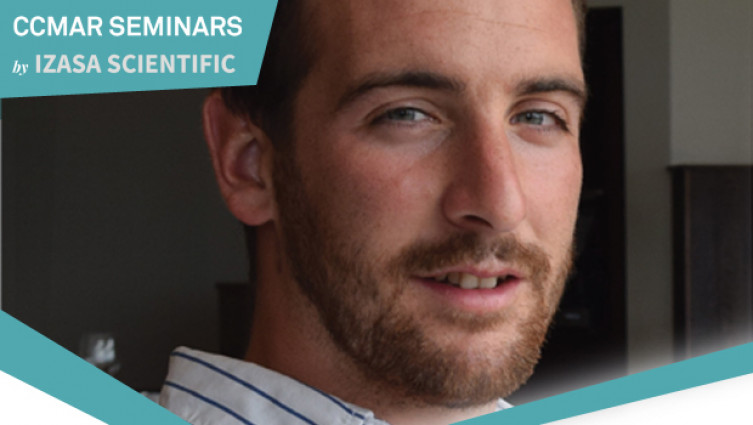Offshore mollusc aquaculture: its potential ecosystem services and environmental impacts
CCMAR SEMINARS
04th October 2017, at 1:30 pm
Amph. -1.8 (bdg 8)
Offshore mollusc aquaculture: its potential ecosystem services and environmental impacts
James Peter Morris
(Royal Belgian Institute of Natural Sciences, Belgium)
Abstract
World aquaculture production is increasing rapidly as seafood demand grows, and marine capture production stalls. Commercial molluscs are an important component of the global aquaculture industry, and account for ~23 % (~15 million tonnes) of the total production. In light of impending freshwater shortages, energy security worries, and an increasing human population, there is a pressing need to find environmentally friendly and sustainable food sources. Practiced responsibly, mollusc aquaculture is one of the lowest-impact and most sustainable proteinaceous food sources currently available. Portugal is one of the EU member states leading the way in movement of aquaculture offshore, but this innovative sub-sector is still in its infancy, and thus it is crucial that science-backed best practices are established with future sustainability in mind. Scientific studies have yet to quantify either the potential ecosystem services, or environmental impacts associated with offshore mollusc farming, relying instead on research carried out on conventional onshore/coastal systems. My research, and EMBRIC funded project at CCMAR, aims to identify the effects and impacts of offshore mollusc farming to inform its sustainable expansion as an important future food source.
Short CV
I grew up on the South West coast of England, and was infatuated by the sea from a young age. Marine Biology was a natural choice for me, and I began my studies at Newcastle University (UK). I developed an interest in marine invertebrates and extreme environments, and moved to the University of Southampton (UK) and the National Oceanography Centre (UK) to complete my Masters and Ph.D. in polar and deep-sea biology: focussing on Antarctic protobranch bivalves and deep-sea hydrothermal-vent crustaceans. Following my Ph.D., I wanted to gain experience in more applied research, but still with a focus on marine invertebrates. I joined the EU Marie Curie CACHE (Calcium in a Changing Environment) Innovative Training Network to research sustainability in mollusc aquaculture: particularly the potential uses for shell waste. For the past two years I have been based at the Royal Belgian Institute of Natural Sciences in Brussels, Belgium working for the CACHE network, which includes partners at CCMAR. I have worked closely with industry partners across Europe, ranging from Scottish scallop farmers, to a Danish aggregates company. During this period, I have become passionate about mollusc aquaculture, and believe it will play an important role in future global food security systems. At a meeting, a discussion about shell waste led to the question of the potential accumulation of shells below offshore aquaculture sites, such as those off the coast of Faro and Olhão. Over the course of the last year, this idea has developed, and I recently received EMBRIC funding, to carry out exploratory diving and sampling here in Faro, with CCMAR.



